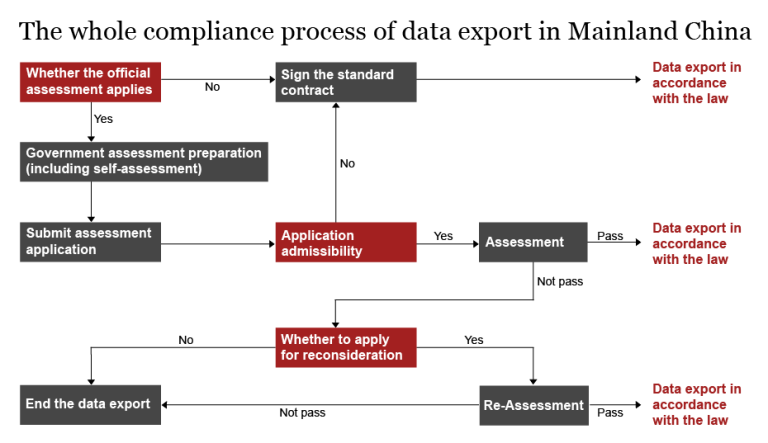China Streamlines Market Exit with New Mandatory Company Deregistration Rules
In a significant move to enhance its market exit mechanisms and streamline the business environment, China has introduced new regulations governing the mandatory deregistration of companies. The “Implementation Measures for the Mandatory Company Deregistration System,” issued by the State Administration for Market Regulation (SAMR), will take effect on October 10, 2025. These new rules are set to have a profound impact on the corporate landscape in China, offering a more efficient and standardized process for dissolving inactive or non-compliant companies.
For UAE investors and businesses with operations in China, this development is a double-edged sword. On the one hand, it provides a clearer and more predictable process for exiting the market. On the other hand, it underscores the importance of maintaining good legal and tax standing to avoid being targeted for mandatory deregistration. This article delves into the key provisions of the new regulations and their implications for UAE businesses.
Key Provisions of the New Deregistration Rules
The new regulations aim to create a more robust and efficient system for removing defunct or non-compliant companies from the market. The key provisions are as follows:
| Provision | Description |
|---|---|
| Clear Criteria for Mandatory Deregistration | The regulations establish clear and specific criteria for initiating mandatory deregistration procedures. These include companies that have failed to conduct annual inspections for several consecutive years, have had their business licenses revoked, or have failed to resume business operations after a period of suspension. |
| Standardized Procedures | The new rules outline a standardized and transparent procedure for mandatory deregistration, including public notification, a period for objections, and a final decision by the SAMR. This is a significant improvement over the previous system, which was often criticized for its lack of clarity and consistency. |
| Protection of Creditors’ Rights | The regulations include provisions to protect the rights of creditors during the deregistration process. This includes a requirement for a liquidation committee to be formed to settle any outstanding debts before a company can be deregistered. |
| Simplified Procedures for Dormant Companies | The new rules also introduce a simplified deregistration procedure for dormant companies that have no outstanding debts or legal disputes. This is intended to reduce the administrative burden on both the government and the companies themselves. |
Implications for UAE Businesses
The new mandatory deregistration rules have several important implications for UAE businesses with investments in China.
A Clearer Path for Market Exit
For UAE investors who are looking to exit the Chinese market, the new regulations provide a much clearer and more predictable path. The standardized procedures and clear timelines will help to reduce the uncertainty and complexity that has often been associated with the dissolution of companies in China. This will make it easier for investors to liquidate their assets and repatriate their funds in a timely and orderly manner.
The Importance of Compliance
At the same time, the new regulations underscore the importance of maintaining good legal and tax standing. UAE businesses with operations in China must ensure that they are in full compliance with all relevant laws and regulations, including conducting annual inspections, filing tax returns, and maintaining accurate corporate records. Failure to do so could result in their companies being targeted for mandatory deregistration, which could lead to the loss of their investment.
Opportunities for Mergers and Acquisitions
The new regulations could also create new opportunities for mergers and acquisitions. As non-compliant or underperforming companies are forced to exit the market, this could create opportunities for well-managed and compliant companies to acquire their assets at a discount. UAE businesses that are looking to expand their presence in China should keep a close eye on the market for such opportunities.
Navigating the New System
To navigate the new mandatory deregistration system successfully, UAE businesses should take the following steps:
- Conduct a compliance health check: Review the legal and tax status of your Chinese subsidiaries to ensure they are in full compliance with all relevant regulations.
- Develop a clear exit strategy: If you are considering exiting the Chinese market, develop a clear and comprehensive exit strategy that takes into account the new deregistration procedures.
- Seek professional advice: The process of dissolving a company in China can still be complex. Seek professional advice from lawyers and accountants with expertise in Chinese corporate law to ensure a smooth and compliant process.
A More Mature and Dynamic Market
The new mandatory company deregistration rules are a sign of the increasing maturity and dynamism of the Chinese market. By creating a more efficient and transparent system for market exit, the regulations will help to foster a more competitive and innovative business environment. This will ultimately benefit all businesses operating in China, including those from the UAE.
As the economic and trade ties between the UAE and China continue to deepen, it is essential for UAE businesses to stay abreast of the latest legal and regulatory developments in China. By understanding and adapting to these changes, UAE businesses can not only mitigate risks but also seize new opportunities for growth and success in one of the world’s most dynamic markets.
References
[1] General Office of the State Council. (2025, September 5). Implementation Measures for the Mandatory Company Deregistration System. Retrieved from https://www.gov.cn/zhengce/202509/content_7041382.html
[2] Beijing Municipal Bureau of Justice. (2025, September 29). New regulations to be implemented in October 2025. Retrieved from https://sfj.beijing.gov.cn/sfj/sfdt/fzxc74/743776535/index.html







